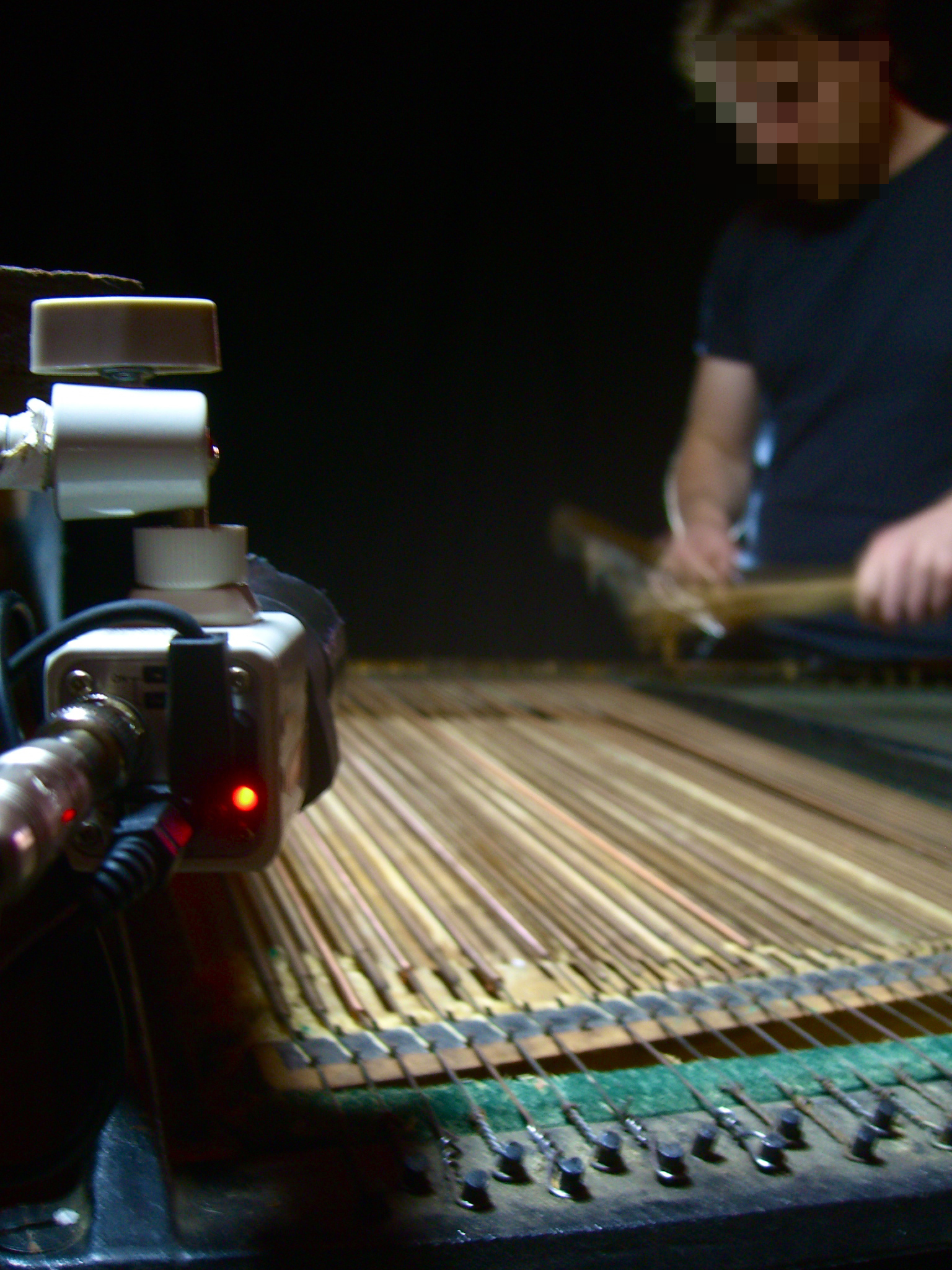COMPOSES
Piano Hero #4
Live-recording of the performance by Stephane Ginsburgh, 25th of March 2017, Muziekcentrum de Bijloke, Gent, Belgium.
Program notes
Piano Hero
An immersive cycle for midi-keyboard, grand piano, live-cameras, video and live-electronics (2011-2017)
"Immersion is the state of consciousness where an immersant's awareness of physical self is diminished or lost by being surrounded in an engrossing total environment, often artificial. This mental state is frequently accompanied with spatial excess, intense focus, a distorted sense of time, and effortless action."
Source: Wikipedia (accessed 29/6/2011)
"If something startles the player out of immersion and into reality, out of illusion and into insight, then we have a moment of arrest remarkably similar to the instant when an antibody latches onto a virus. Suddenly, a shift in the system (immunological or ideological) occurs, and nothing remains the same."
Source: J.Blais, J.Ippolito, At the Edge of Art , Thames & Hudson, 2006 (p.58)
The "modern" grand piano, perfected in the nineteenth century, consists of a keyboard, a set of metal strings and an ingenious mechanism of hammers and dampers, which serves as the transmission between the pianist's muscles and the strings. The wooden body of the piano amplifies the vibrations of the strings when they're hit by a hammer. In Piano Hero this configuration is "updated" and placed in today's context, using some of the typical artefacts of the 21st century: the keyboard now is an electronic one, the computer serves as the transmission and the strings are played by a virtual pianist -the avatar of the pianist of flesh and blood sitting on stage- while the wooden resonating body is substituted by a set of electro-mechanical speakers.
But not only the "piano" is recontextualized. The mechanisms of "observing", as done by the audience, is also taken into the equation. The act of "observing" underwent a radical change of meaning in a society which is ever more being "monitored", either by the millions of security cameras in public places, a network of geo-stationary satellites which can zoom in to human dimensions or the world wide web on which every day millions of homemade videos are posted and watched by millions of anonymous visitors.
Piano Hero #1 is the point zero of the Piano Hero cycle: the pianist becomes a mere operator in a world of bits and bytes. From Piano Hero #2 on, the grand piano (which has become a "fremdkörper" after the context-shift of PH#1) enters the game to create a hybrid body which fully articulates the tension between the real and the virtual, the human and the mechanical, the past and the present. After having been re-introduced in Piano Hero #2, the resonant characteristics of the piano and its amplification shift to the foreground in Piano Hero #3. The piano becomes a resonant room, a black box, a filter in a computer-controlled feedback system, creating a barely controllable chaotic system with which the pianist needs to interact. The hybrid body that was operational in Piano Hero #1-2 is transformed again and placed into a hybrid, augmented reality. Finally, in Piano Hero #4, the pianist and the audience find themselves caught in the multiple dimensions of this augmented reality.
Piano Hero #1 is commissioned by and dedicated to Frederik Croene. Piano Hero #2 is commissioned by Huddersfield Contemporary Music Festival and is dedicated to Mark Knoop. Piano Hero #3 & #4 are commissioned by Ultima Festival Oslo and deBijloke Gent. #3 is dedicated to Stephane Ginsburgh, #4 to Meyer Prins.
Credits: Video-recording of Frederik Croene playing on his piano-frame by Kobe Wens, Max-patches for Piano Hero #1 & #2 programmed by Josiah Oberholtzer, Klaas Verpoest & Stefan Prins, and revised and revived by Florian Bogner. The patches for Piano Hero #3-#4 are programmed by Florian Bogner/ICST.

Frederik Croene playing on his piano frame